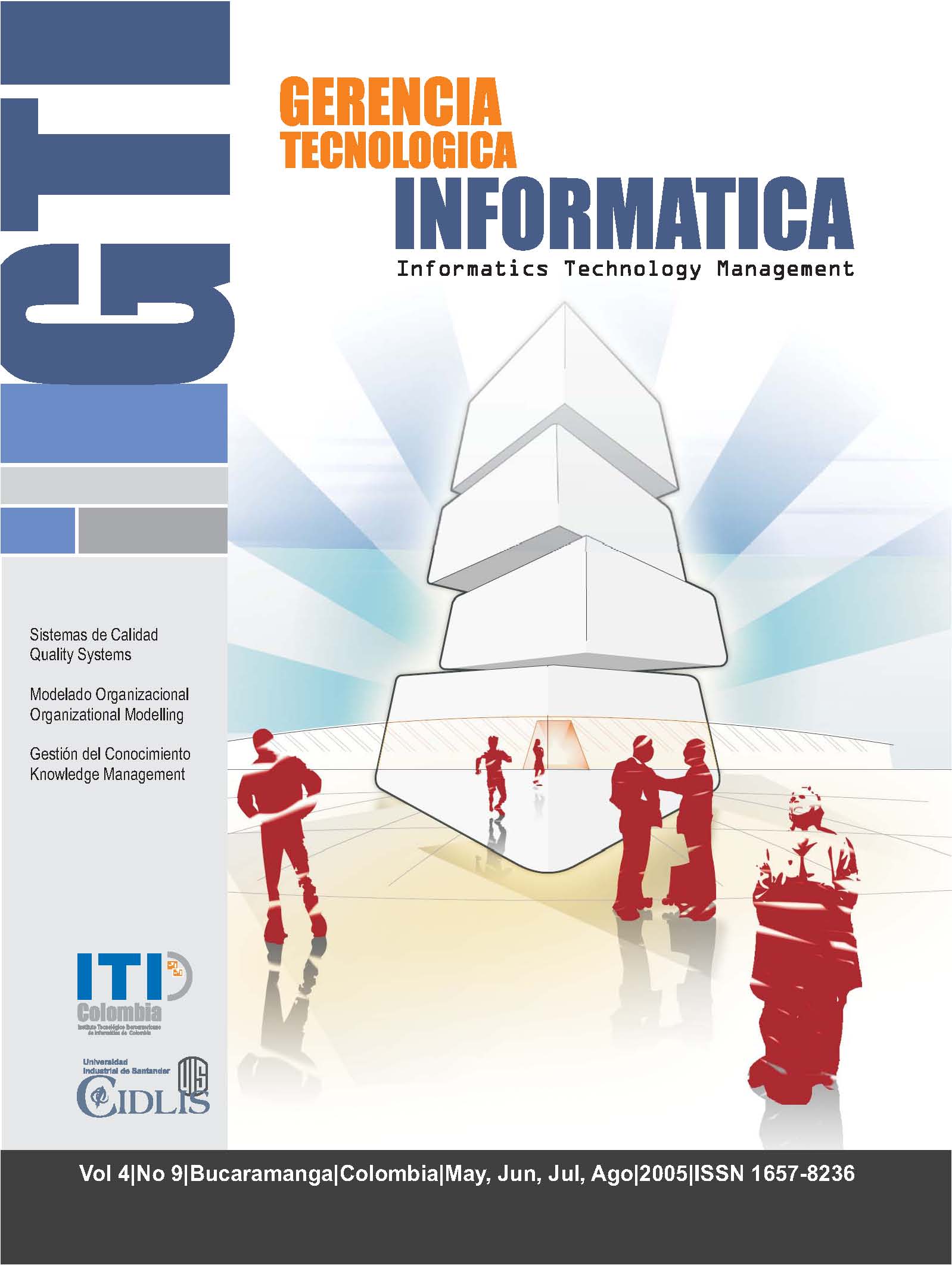How to Cite
Abstract
RESUMEN
El mejoramiento de procesos software se realiza desde diferentes Marcos de Trabajo, seleccionados de acuerdo a los factores de decisión de cada organización. En Sur América son más representativas las pequeñas y medianas empresas software, las cuales usualmente tienen un enfoque más operativo que estratégico, y se desarrollan en un entorno limitado respecto a los recursos. De acuerdo a lo anterior, se estudia el comportamiento de estas empresas frente a los Marcos de Trabajo (MT) CMM/I®, SPICE e ISO 9000, catalogados como más representativos en esta región; generando un mapa de la calidad de estos MT por cada país de Sur América, asociándolo a las actividades concretas sobre niveles de exportación y perspectivas de iniciativas de MT por cada país. Destacándose así los factores de éxito, los motivos y los errores más comunes al emprender acciones de mejoramiento de procesos software, para obtener criterios comunes que aseguren el éxito de estas iniciativas. Posteriormente, se analiza la influencia del SPIN (Software Process Improvement Network) en estas acciones, como una entidad catalizadora para la mejora de proceso, proponiéndola como enlace Gobierno-Empresas para establecer subsidios que permitan a una PYME acceder a una
certificación o evaluación de un marco de trabajo en particular. Para crear sinergia en los SPIN de la región se ha establecido la organización SPIN Latinoamérica(www.latinspin.org).
PALABRAS CLAVES
SPI
SPIN
Marcos de trabajo de calidad del software
ABSTRACT
The Software processes improvement(SPI) is made from different frameworks, selected according to the factors of decision of each organization. In the South America the small organizations are more representative and medium software companies, which usually have an approach more operative than strategic, and are developed in surroundings limited with respect to the resources. According to the previous thing, the behavior of these companies in front of Frameworks (MT) CMM/I®, SPICE and ISO 9000 studies, catalogued like more representative in this region; generating a map of the quality of these MT by each country of the South America, associating it to the concrete activities on export levels and perspective of initiatives of MT by each country. Standing out therefore the factors of success, the reasons and the errors most common when undertaking actions of SPI, to obtain common criteria that they ensure the success these initiatives. Later, the influence of SPIN (Software Process Improvement Network)
in these actions is analyzed, like a catalytic organization for the process improvement, proposing it as it connects Government-companies to establish subsidies that allow a PYME to accede to a certification or evaluation of a MT in individual. In order to create synergy in the SPIN of the region organization SPIN Latin America has settled down (www.latinspin.org).
KEYWORDS
SPI
SPIN
Frameworks
Downloads
References
- BEDINI, Alejandro. Calidad en Software. En: 1er Congreso Internacional de Gestión de Conocimiento y de la Calidad ( 2003: Cartagena de Indias-Colombia). Memorias ISBN 97355- 5-X, Bucaramanga- Colombia : ITI Colombia, 2003, cd.
- RICO, David. ROI of Software Process Improvement Metrics for Project Managers and Software Engineers. USA. J. Ross Publishing, 2004, Pág. 157.
- Gartnert,05. (Online) http://www.gartner.com/4_decision_tools/measurement/me asure_it_articles/2003_0424/ben_cmm.jsp accesado el 06/06/05
- mapa (Uruguay) (online) http://www.tcs.com/iberoamerica/index.htm, accesado el 06/06/05 (Bolivia) (online) http://www.ibm.com/bo/services/ams/sw_factory.phtml, accesado el 06/06/05 (Venezuela) (offline) Cluster de Software en Venezuela de Software en Venezuela Diagnóstico, Benchmarking y Principales Áreas de Acción, CLACDS y Corporación Andina de Fomento, 20 de septiembre 2001, de Fomento de 2001 (Argentina) (offline) Andrea Pujo, Evolución reciente del sector software y servicios informáticos. La experiencia en cordoba. (Chile) (online) http://www.spin-chile.cl, accesado el 06/06/05 (Brasil) (online) http://www.mct.gov.br/sepin/Dsi/qualidad/CMM.h tm, accesado el 06/06/05
- JENKINS, Marcelo. Comparación de las Iniciativas Latinoamericanas para Mejorar la Producción de Software. En: GST Latinoamérica (2005: Puerto Rico).
- LINGER, R.; MEAD, N.; LIPSON, H. Requirements Definition for Survivable Network Systems. SESSION: Software engineering: theory, application and practice. ISBN:1-58113-445-2. USA, Editorial IEEE, 2002, páginas: 984 - 991
- Spin,2005(online)http://www.sei.cmu.edu/collaborating/ spins/spins. html, accesado el 06/06/05
- Qualdade de no sector de software Brasileiro. Ministério da ciencia e tecnologia, Secretaria de Política de informática e automaÇao 2001, página 57. Libro/Reporte que da el gobierno de Brasil.
- VISCONTI Marcello, ZAVANDO Sonia. Experiencies in : Software Process Improvement in the Emerging World: the Case of Chile.. Proceedings of X Software Engineering Process Group Conference SEPG’98.( Marzo 1998, Chicago, USA)
- Diario El universo de Guayaquil publicado en sección Empresas y Negocios, 14/07/2002. Guayaquil , Ecuador.
- BEDINI, Alejandro. Modelo Cóndor. En Primer congreso Latinoamericano de productividad y calidad de Software, 1998, Santiago de Chile-Chile, PROCHILE, 1998, página 45.
